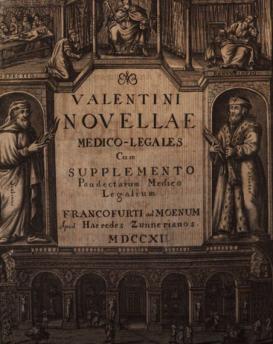Physicians were not only healers and naturalists. They helped govern communities across Europe from medieval to modern times. This project is about their centuries-long effort to know and judge well and the methods of empirical inquiry—the science—this generated.
Physicians acted for justice and the common good alongside jurists, pastors, barber-surgeons and midwives, sworn masters of guilds, and local authorities in ways that went far beyond giving expert testimony and in situations ranging more widely than the phrase forensic or legal medicine conveys. These were situations of uncertainty or disagreement involving community boundaries and membership; family, marriage, and work; quality control and regulation of practical arts; allocation of community resources; conflict and violence. This was especially true in the Italian, Swiss, Dutch, and German spheres of politically plural Europe, where physicians had civic and state responsibilities. They helped govern by ways of knowing society as a physical world—observing and testing, describing, weighing evidence, reconstructing events, classifying to predict, reasoning to causal explanations.
Thousands of cases archived by physicians functioned as the database of their evolving art of empirical inquiry for good governance and eventually good science. This aspect of the project contributes to Department II’s research focus on the history of data and the archive. The growth of method and its associated habits and morals across several periodizations in the history of knowledge—medieval, Renaissance, printing revolution, Scientific Revolution, public sphere, Enlightenment, research university—contributes an example of longue durée to the question of science and modernity raised in the Department’s research focus for 2017–2019.

